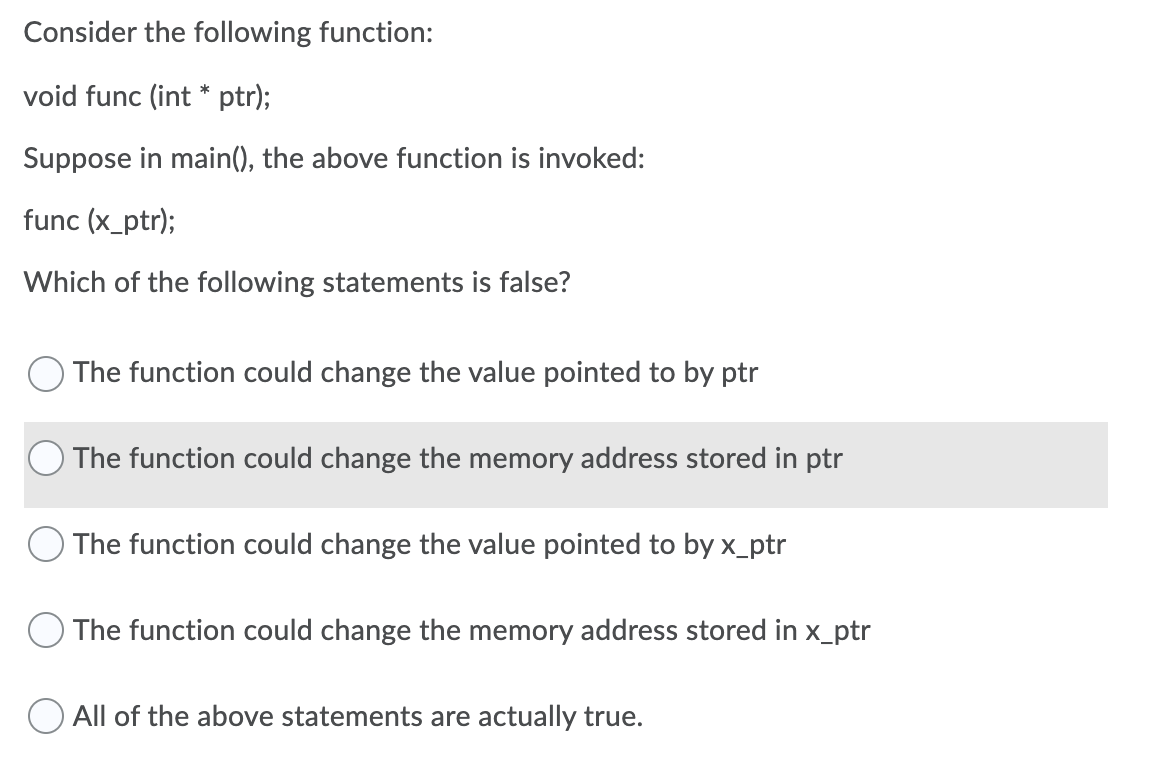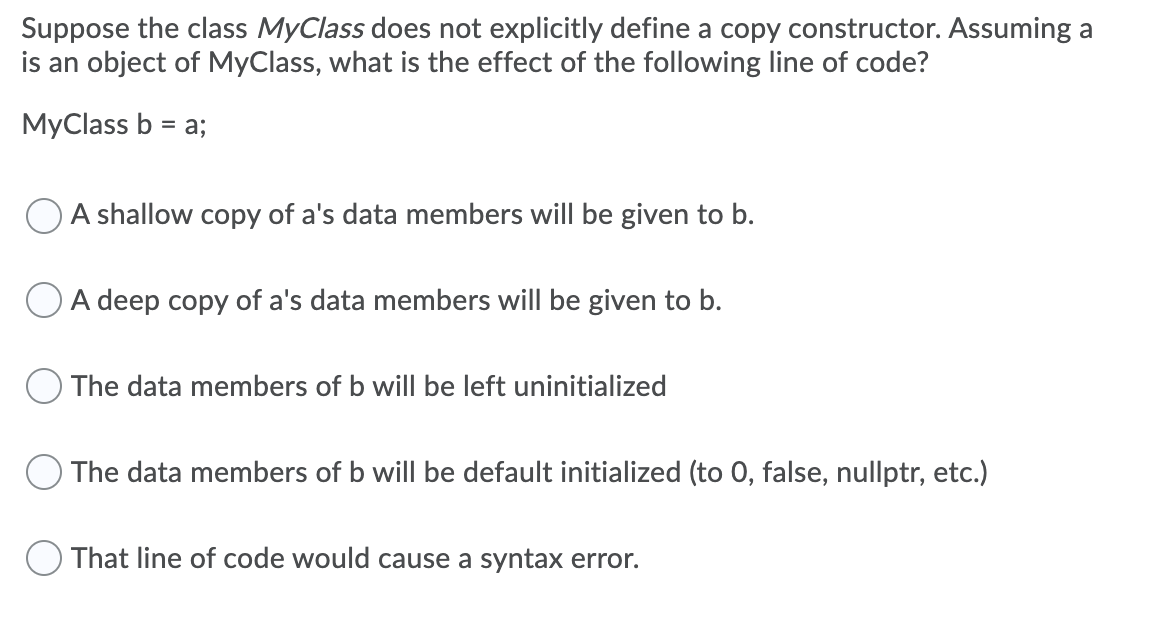Consider the following function: void func (int * ptr); Suppose in main(), the above function is invoked: func (x_ptr); Which of the following statements is false?
Consider the following function: void func (int * ptr); Suppose in main(), the above function is invoked: func (x_ptr); Which of the following statements is false?
C++ Programming: From Problem Analysis to Program Design
8th Edition
ISBN:9781337102087
Author:D. S. Malik
Publisher:D. S. Malik
Chapter12: Points, Classes, Virtual Functions And Abstract Classes
Section: Chapter Questions
Problem 1TF
Related questions
Question

Transcribed Image Text:Consider the following function:
void func (int * ptr);
Suppose in main(), the above function is invoked:
func (x_ptr);
Which of the following statements is false?
The function could change the value pointed to by ptr
The function could change the memory address stored in ptr
O The function could change the value pointed to by x_ptr
The function could change the memory address stored in x_ptr
All of the above statements are actually true.

Transcribed Image Text:Suppose the class MyClass does not explicitly define a copy constructor. Assuming a
is an object of MyClass, what is the effect of the following line of code?
MyClass b = a;
%3D
O A shallow copy of a's data members will be given to b.
O A deep copy of a's data members will be given to b.
O The data members of b will be left uninitialized
O The data members of b will be default initialized (to 0, false, nullptr, etc.)
O That line of code would cause a syntax error.
Expert Solution
This question has been solved!
Explore an expertly crafted, step-by-step solution for a thorough understanding of key concepts.
Step by step
Solved in 2 steps with 1 images

Knowledge Booster
Learn more about
Need a deep-dive on the concept behind this application? Look no further. Learn more about this topic, computer-science and related others by exploring similar questions and additional content below.Recommended textbooks for you

C++ Programming: From Problem Analysis to Program…
Computer Science
ISBN:
9781337102087
Author:
D. S. Malik
Publisher:
Cengage Learning

C++ Programming: From Problem Analysis to Program…
Computer Science
ISBN:
9781337102087
Author:
D. S. Malik
Publisher:
Cengage Learning